#castrato
Text

Carlo Broschi aka Farinelli
He looks a bit older than any other portraits of his I've seen before.
#I'm not ok right#farinelli#im so happy to have found this randomly#carlo broschi#i love him so much#i wish there was more information about him around#he was so proud of his calatrava medal#i need someone to talk to him about#castrato#castrati
17 notes
·
View notes
Text
Do you have a favorite book??
I have so many! I think today I’ll discuss Cry To Heaven by Anne Rice.
“This is the story of the castrati, the exquisite and otherworldly sopranos whose graceful bodies and glorious voices win the adulation of royal courts and grand opera houses throughout Europe. These men are revered as idols—and, at the same time, scorned for all they are not.”
It’s impossible to imagine how the castrati must have felt - not whole, still male, not fully male. They would never be able to procreate even if they wanted to and all because they voice that rivaled the angels. The church did this unapologetically indiscriminately.
It’s a story about more than just one person and like all Rice books, the twists and turns were many. Overall, I enjoyed this book as it wasn’t a vampire book and it wasn’t about witches. It’s background lay in real events that really happened.
If you want something different, give it a read. I’m about to reread it myself.
#cry to heaven#anne rice#castrati#castrato#reread#books#my opinion#if you can’t be nice keep scrolling
18 notes
·
View notes
Text

32 notes
·
View notes
Text
D&D Castrato Bard idea
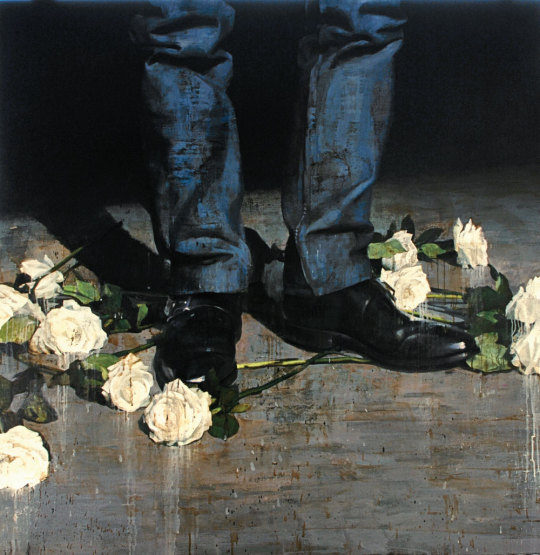
Undecided whether to put this in a historical D&D session set over the 17th or 18th century (either works because this was when the castrati were most prominent - though existed since the 15th century, so that period would also work (They technically existed since byzantine times but people typically refer to the opera castrati when discussing "castrati")), or if say a church that a human paladin followed had an equivalent castrati in the realm of D&D. Castrati were men who were castrated before hitting puberty so as to preserve their soprano or contralto voice. In their hay day they earned decent pay and notoriety as opera singers, so poorer families sometimes castrated their sons in the hopes of making them be castrati and in turn earn the family money. Highly recommend Early music sources' video if you want a general summary of the topic: https://youtu.be/iP2vw6JIdNQ
Similar build and / or age to the barbarian of the party, to contrast with his high pitched, boyish voice (which I know contradicts the ways the lack of physiological changes induced in puberty means the castrati often, going by various paintings and early photographs, has softer facial features and tended to be pudgy but a character can still be big and muscular for reasons other than a male puberty). He'd make his body more imposing and avoid speaking where possible to avoid drawing attention to his voice in his day to day life. Not that he'd be keen to show off his singing anyway, as his singing wasn't all that great. More a poet than anything, master of written rather than spoken words and songs. Subsequently he didn't end up being the golden goose his poor family had hoped for. Just a silly goose! The times he tried to work within his abilities to make them the money they expected, instead of being paid for the songs he wrote his work was attributed to other, more famous composers. It was at least a little rewarding to hear how much others enjoyed his words all the same. That didn't stop his family evicting him. Only allowing his return if he brings back enough money to support them. With so many years dedicated to musical arts, even with his lack of talent and lackluster progress, it's all he really knows how to do so assumed the role of a travelling bard.

Before being kicked out, his siblings mockingly dubbed him "Caster" (short for castrato, of course) more often than using his actual name for so long he'd forgotten it. Once he joins a party, if the members ask about his name, he'll joke it's because his mother thought he was so sweet like caster sugar, or that it was because his sonets were so enchanting it was like he was a spell caster. Assuming there's no non-human equivalent of the castrati, it'd take a while for party members to learn the actual meaning of his name (if he ever discloses it at all).
Unlike the playboys castrati were known to be, Caster's lack of fame, his general disinterest in the lust and adoration such fame might have granted him as it had other castrati and longing for a loving home / companionship meant that rather than relishing in his forced infertility it instead weighed on him like lead boots. Appreciative of any company that will have him, but limited by his aversion to speak (or rather, to have others hear his unusual voice), he readily helps whatever party is kind to him. With his supposedly limited skillset, he feels he is useless despite the innumerable ways he helps the party and the undesirables of whatever town they pass through. Empathising with the homeless and orphaned, and acting as the parental figure of the party. Progressively adopting more and more people in a similar way to the Bat-fam or Pathologic's Artemy Burakh.
(Also I know the painting is anachronistic but I really like it and felt it fit the vibe)
2 notes
·
View notes
Text



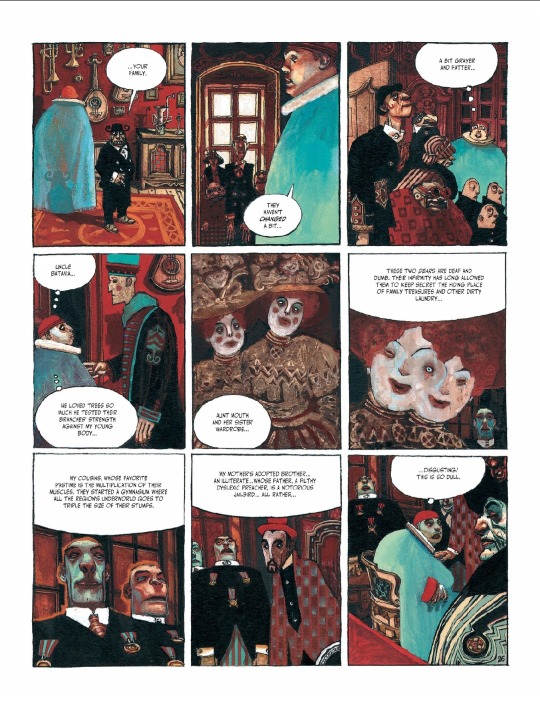
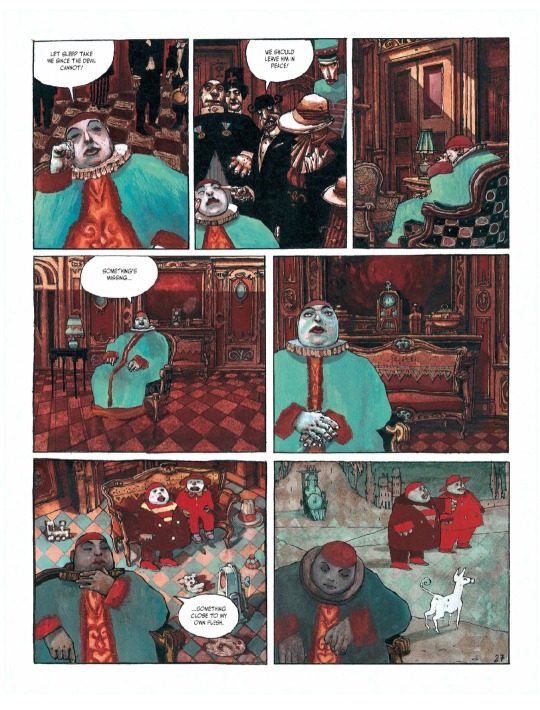

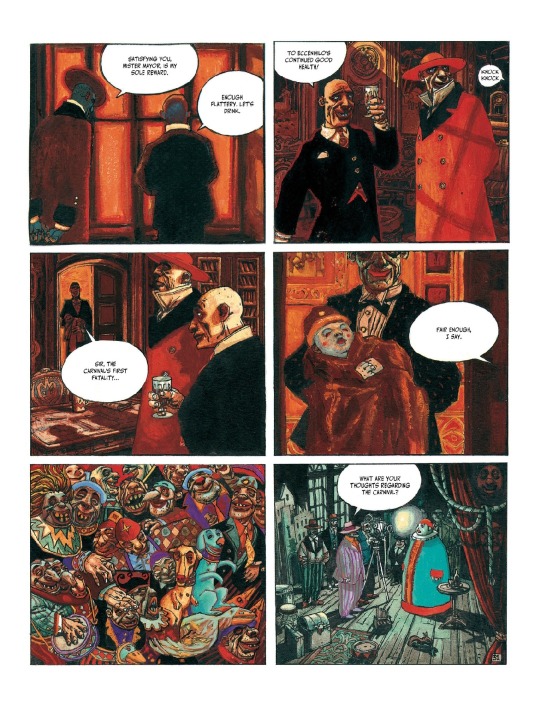
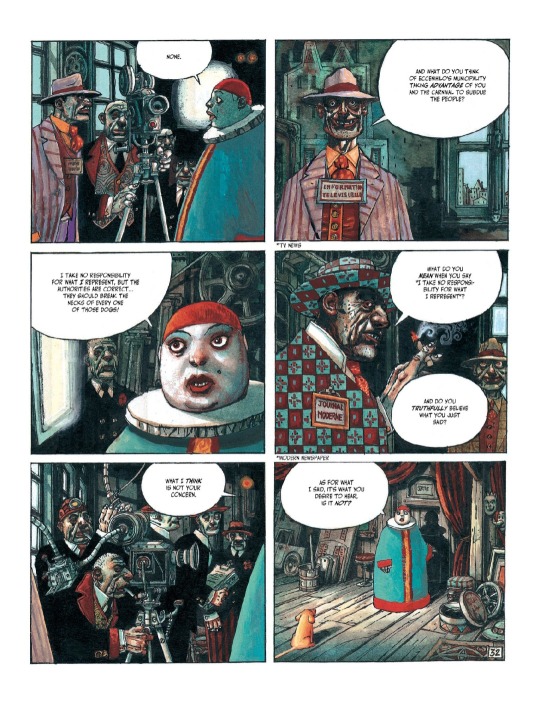

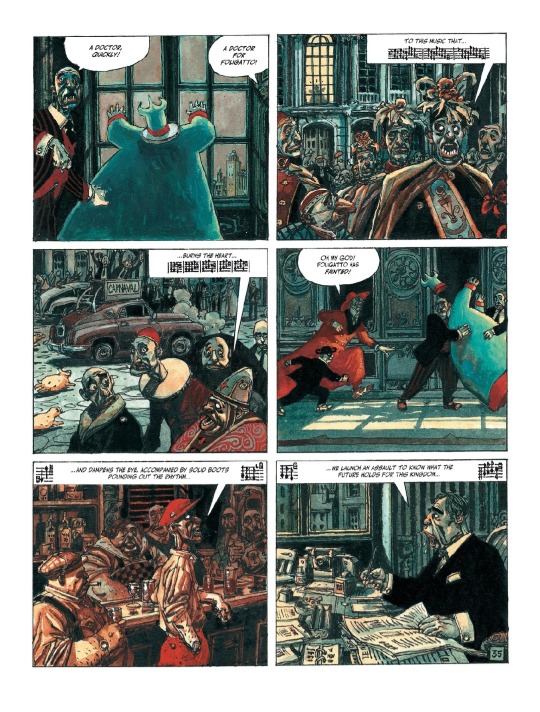
"What are your thoughts regarding the carnival? -None. -And what do you think of Eccenhilo's Municipality taking advantage of you and the carnaval to subdue the people? -I take no responsibility for what I represent, but the authorites are correct... they should break the necks of every one of those dogs! -What do you mean when you say "I take no responsibility for what I represent"? And do you truthfully believe what you just said? -What I think is not your concern. As for what I said, it's what you desire to hear, is it not?"
Foligatto.
2 notes
·
View notes
Text
Vienna Boys Choir and Castrato (Essay)
youtube
Wild rose (composed by Werner)
When it comes to the song "Wild Rose", whether it is Schubert's or Werner's, the Vienna Boys' Choir sings the best. I did some research around the choir.
@@@@@@@@@@@@@@@@@@@@@
The Vienna Boys' Choir (Wiener Sängerknaben) was a boys' choir founded in 1498 by Holy Roman Emperor Maximilian I as the Court Chapel Boys' Choir. It is based on the Wilten Boys Choir of Innsbruck, whose members were brought to Vienna by Emperor Maximilian I when he founded the New Court Chapel Boys Choir in Vienna.
The number of members is about 100. The orchestra members were divided into four groups of about 25 people each named after the orchestra and composers associated with Vienna: "Mozart", "Schubert", "Haydn" and "Bruckner". goes on a concert tour for 11 weeks a year, and one group performs about 80 performances in various parts of the world. One of the groups always goes on a concert tour, so three groups remain at school and take classes. One of these three groups is supposed to sing at Mass every Sunday in the Royal Chapel. Three groups will sing in turn every week, so one group will sing in the Royal Chapel every three weeks.
@@@@@@@@@@@@@@@@@@@@@
Excerpt from Wiki "Vienna Boys Choir"
It's a group with a long history. Founded in 1498, it was a little earlier than Luther's Reformation (1517). (It is said that even before the birth of Christianity, even under Judaism, boys were hunted out to sing hymns.) , there was something that could not be replaced, whether it was a countertenor or a sopranist. Here, in the case of the Vienna Boys Choir, the voice quality is called boy soprano and boy alto.
"Therefore, a forbidden move was used." It is to castrate the boys before they reach the stage of dysphonia and to keep the quality of their voices in the state before the dysphonia. A person who has undergone this procedure is called a "castrato" in English. verb castrate: to castrate
@@@@@@@@@@@@@@@@@@@@
By castrating males, it suppresses the secretion of male hormones, artificially hinders the remarkable growth of the vocal cords during the male secondary sexual characteristics period, eliminates the dysphonia (so-called "voice change"), and improves the voice quality of boy soprano. An attempt to keep the range as long as possible. On the other hand, since growth hormone is secreted, the height and ribcage grow as normal, and the growth of the skeleton, including the ribcage, and lung capacity is almost the same as that of adult men, and the tone of voice and the sustaining power of singing voice are not different from those of minors. It is said that it cannot be reproduced by female singers. Their voices were said to be sweet, wild and yet very sensual.
@@@@@@@@@@@@@@@@@@@@@@@
From Wiki (castrato)
It seems that the castrato singing voice could not be replaced by any other vocal parts. But, as expected, this inhumane custom was banned by the Pope, and it seems that it was abolished. "Falsetto" here means falsetto. I don't want to hear "artificial" voices that have undergone this kind of treatment, no matter how difficult it is to obtain. I feel sorry for these boys.
#Vienna Boys Choir#Castrato#Wild rose#Mozart#Schubert#Haydn#Bruckner#boy soprano#boy alto#castrate#dysphonia#voice change#essay#Youtube
9 notes
·
View notes
Text
i really be out here thinking the most out of pocket things man today i was watching a music video of the Pentatonix (for reasons related to me making a solja boy remix for my little sister) and that one soprano guy had his solo and my immediate thought was "oh they would have loved him in the 17th century"
3 notes
·
View notes
Text

Castrato singer Gaetano Majorano (Caffarelli) carries the Teatro San Grisostomo with him by Zanetti (1680-1767)
The legend within the picture says: Il celebre Caffariello qui cantava à S. Giov. Crisostomo; e porta via il teatro i poi che finita la sua aria, si votava affatto (The famous Caffarelli who sang in the San Giovanni Grisostomo as he carries away the theatre with him, for after he finished his aria, the theatre quickly emptied out.)
At the San Giovanni Grisostomo in Venice Caffarelli sang in the following operas:
Berenice by Francesco Araia (1709-1770) - 26. December 1733
Merope by David Perez (1711-1778) - 19. November 1750
Arianna e Teseo by Girolamo Abos (1715-1760) - 26. December 1750
Didone abbandonata by Gennaro Manna (1715-1779) - 30. January 1751
#caffarelli#castrato#farinelli#castrati#baroque#gaetano majorano#classical music#carlo broschi#italian history#historical figures#history#music history
9 notes
·
View notes
Text
Villa Farinello in Porta Lame, Bologna
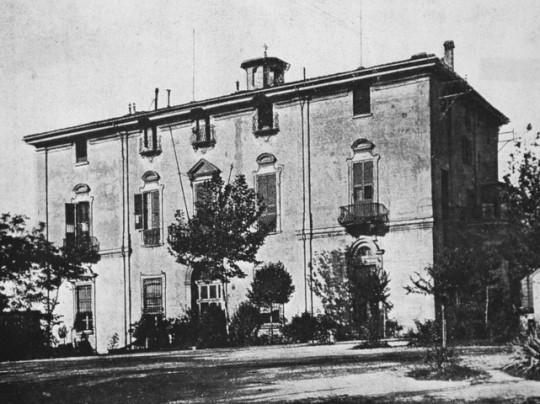
The casino had been bought by Farinelli in 1732 and works upon it were led (along with the construction of a public chapel) until his arrival in Bologna from the Spanish court in 1762.
The villa gathered all things Farinelli had been gifted from Kings and aristocracy throughout his long career: instruments (Stradivari, Amati, fortepiani and harpsichords each one bearing the name of a famous Italian painter of Farinelli's choice), paintings (including some by Velasquez, Ribera and Murillo, plus many portraits of nobles and of Farinelli himself), statues, stoups, a number of precious snuffboxes, musical manuscripts mostly autograph, expensive books and the like.
This house, and his master, welcomed Wolfgang Amadeus Mozart, Emperor Joseph II, Giacomo Casanova, Charles Burney, Padre Giambattista Martini and many more.
Carlo Broschi died there in 1782. The villa had also seen a birth: that of Maria Carlotta Pisani in 1768, daughter of Anna Gatteschi and Matteo Pisani, Farinelli's nephew by his sister Dorothea Broschi.
After Farinelli's death most things inside the house were lost or sold. The villa itself became part of a sugar factory in the XIX ct., then a post office, only to be demolished in 1948 for it had been damaged by bombings during WWII. Nothing of it remains today.
Above: Villa Farinelli outside Porta Lame, photograph from the late XIX century
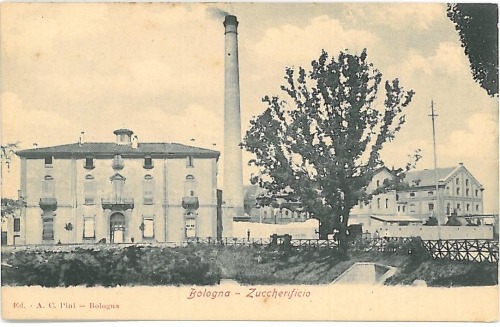

Left: Villa and sugar factory alongside. Right: Villa and post office
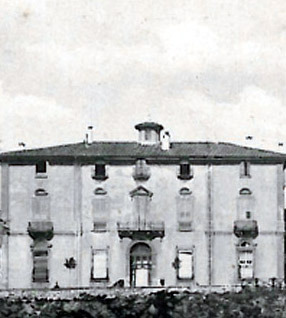
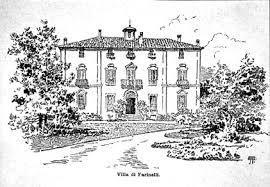
Left: photograph of the front. Right: drawing by A. Sezanne

The Villa before being demolished and after the bombs, 1948
#farinelli#bologna#castrato#castrati#carlo broschi#cbfarinelli#classical music#history#wwii#italy#music#baroque#countryside#mozart#casanova#charles burney
10 notes
·
View notes
Text
Farinelli, il castrato (1994)
Informe

De inicio a fin, esta película nos muestra una escenificación de la nueva vida en el Barroco, donde el drama, el teatro, la extravagancia, lo inusual y la tragedia… nos hace compañía a lo largo del filme, a medida que el señor Carlos Broschi o Farinelli, vive su vida.
La escenografía nos muestra una visión particular y realista del Barroco, nos mete de lleno en ese ambiente y nos da un vistazo de las muestras artísticas de la época, especialmente de la música a través del teatro y la ópera, ayudándonos a entender, un poco más, la importancia o el peso que representaba el arte en aquel entonces.
Sinceramente, debe haber sido sublime y un privilegio, tener la oportunidad de presenciar y disfrutar de la interpretación dramática y musical del mismo Farinelli. Su canto, y la escenificación de este, en conjunto con la orquesta, logran una experiencia teatral completa. Tiene el sello del Barroco por todos lados.
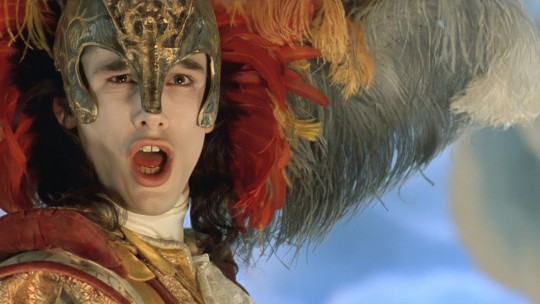
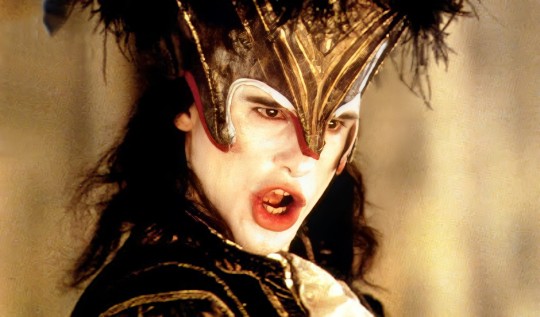
Es interesante ver los distintos espacios ambientados: como sucede al principio del filme, donde vemos la plaza como un espacio de entretenimiento para el disfrute del público, similar a un escenario al aire libre. Como un símbolo para representar el poder civil. Así mismo, los espacios verdes también están presentes. Aunque solo aparecen como vistazos de los jardines que componen el complejo del Palacio Real de Felipe V.
Por otro lado, el haber nacido en la época barroca, dónde la música tomó auge después del nacimiento de la ópera como espectáculo, este señor prácticamente vivió de gira en gira compartiendo su voz y arte con el mundo. Gracias a la delicadeza de su voz por ser castrato, estuvo vinculado por muchísimos años en el entrenamiento de la realeza española.

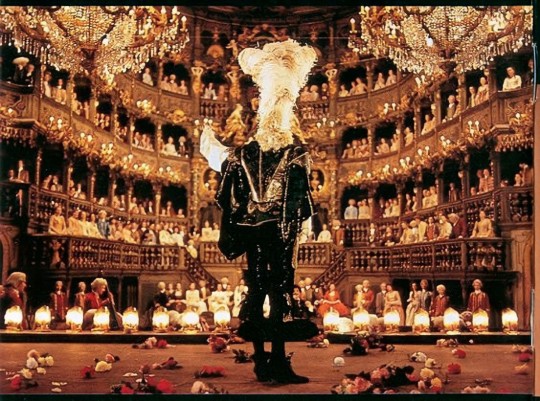
El registro vocal de Farinelli es de otro mundo, es impresionante su capacidad para conmover al público. Canta con tanto sentimiento, que pareciera sacudir hasta lo más profundo del alma. Aquí encaja la frase en donde dice que: "La mejor música, debe ser capaz de tocar el corazón" y al final, eso es el arte, aquel fenómeno capaz de despertar algún tipo de emoción. Sabiendo esto, vemos que el Barroco sigue un esquema similar, porque nos hace sentir algo, nos mantiene eufóricos y expectantes, en donde los espacios se conciben para ser disfrutados.
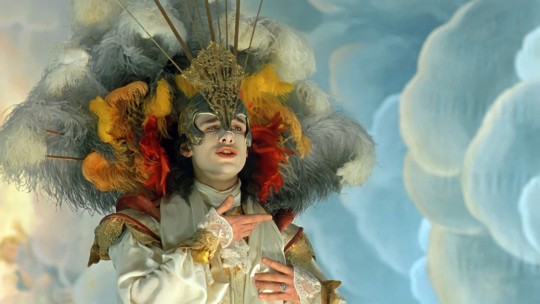
Lo mismo sucede cuando dice: "Necesito una música capaz de despertar ese fragmento del infinito que duerme en el fondo” esto es fácilmente comparable con la nueva tendencia del Barroco, que se caracteriza por la emocionalidad, la espectacularidad y la escenografía. Esa nueva intención teatral que busca representar el artista en sus obras. Que, incluso, se ve envuelta en la propia arquitectura.
Las plazas, los teatros, las escaleras, los salones de la corte y las habitaciones de los palacios, que van apareciendo en el transcurso del filme, todos estos, son espacios que contribuyen a darnos una idea más clara, de la vida que era llevada en aquel entonces.

El Palacio Real de la Granja de San Ildefonso
6 notes
·
View notes
Text

Godchild vol. 5 by Kaori Yuki
0 notes
Text

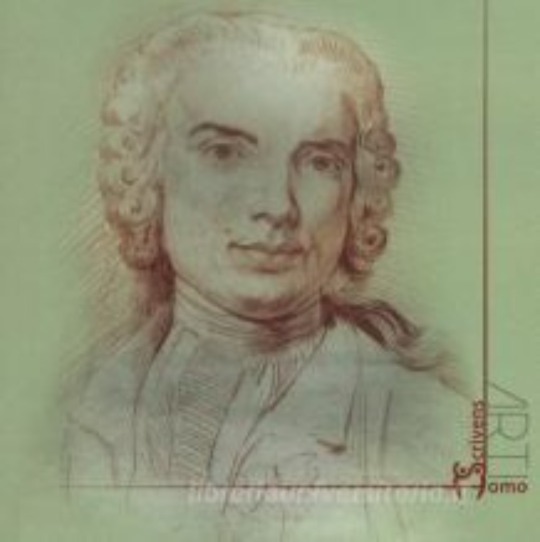
I would be extremely thankful if anyone could give me some info on this drawing of the beautiful Farinelli.
10 notes
·
View notes
Text
This is babs
youtube
1 note
·
View note
Photo
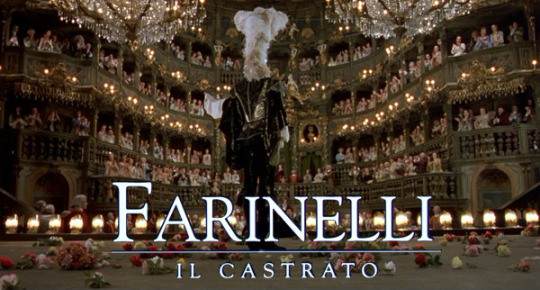




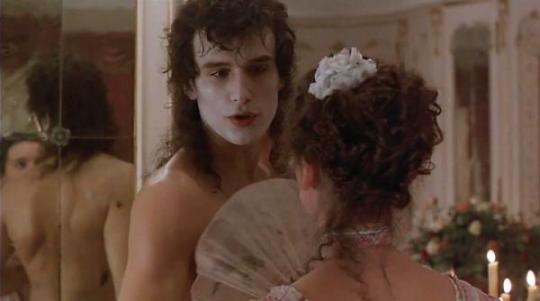
Castration Affected Skeleton Of Famous Opera Singer Farinelli, Archaeologists Say
https://www.forbes.com/sites/kristinakillgrove/2015/06/01/castration-affected-skeleton-famous-opera-singer-farinelli/#64e335842db4
Farinelli
https://en.wikipedia.org/wiki/Farinelli
Farinelli 24 January 1705 – 16 September 1782)[a] was the stage name of Carlo Maria Michelangelo Nicola Broschi, a celebrated Italian castrato singer of the 18th century and one of the greatest singers in the history of opera.
Farinelli has been described as having soprano vocal range and sang the highest note customary at the time, C6.
1 note
·
View note
Text
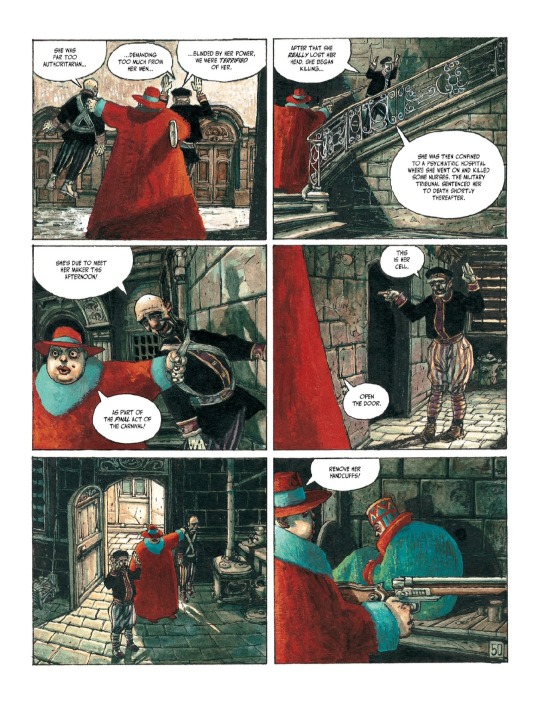
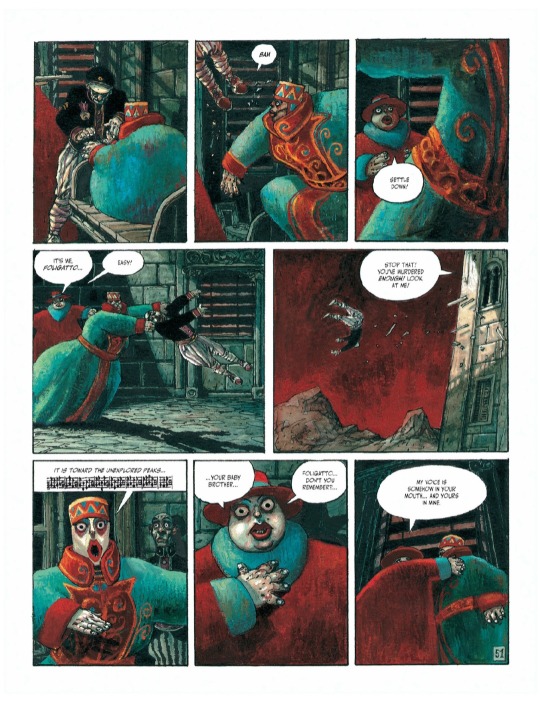
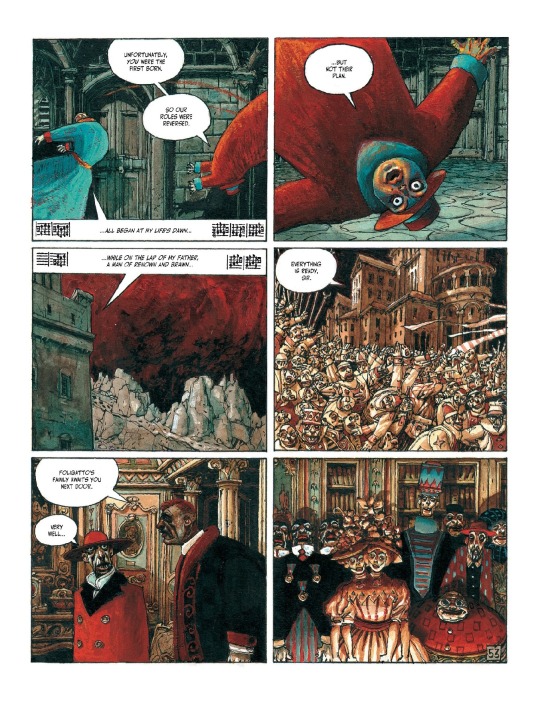
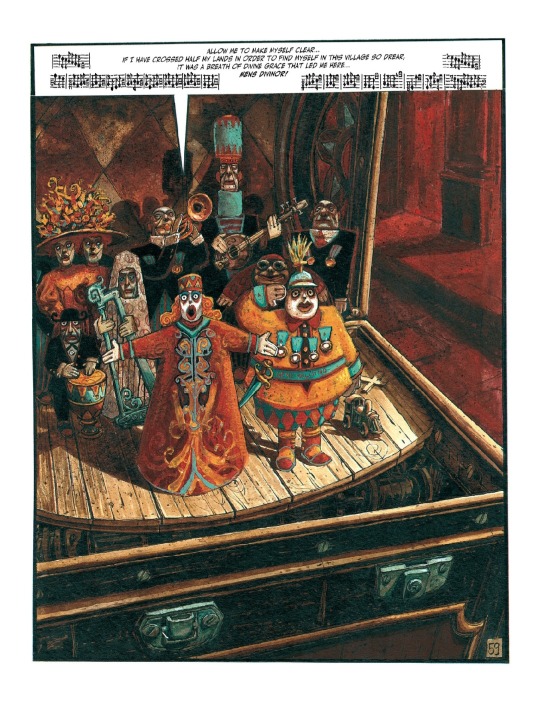


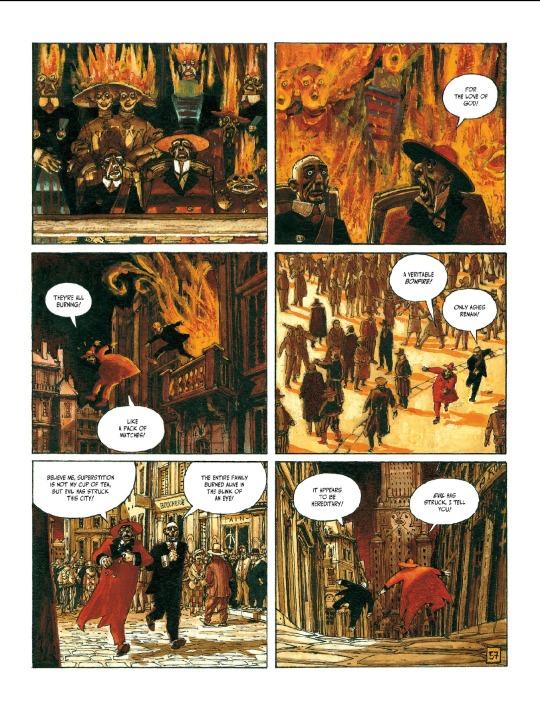
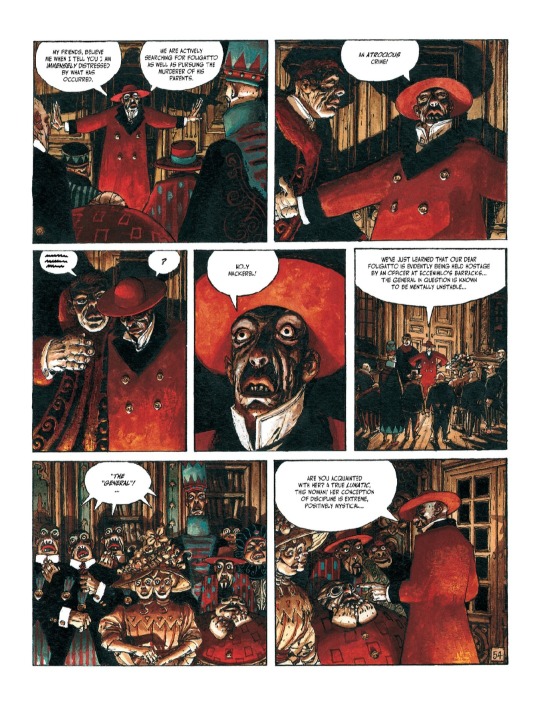
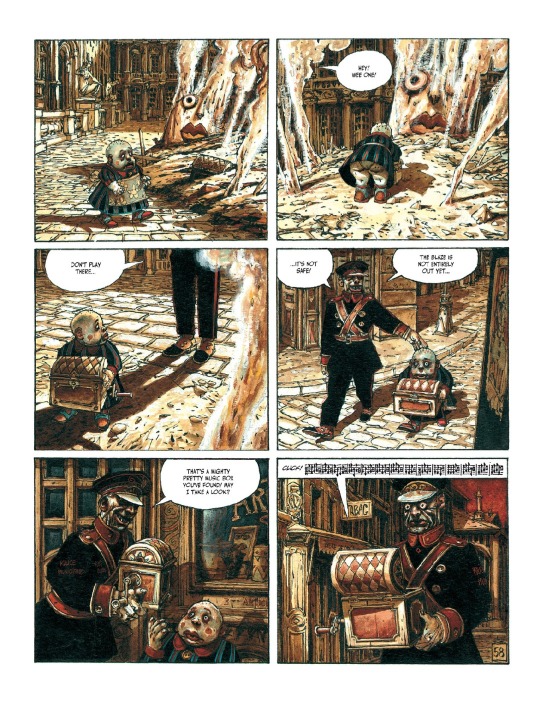
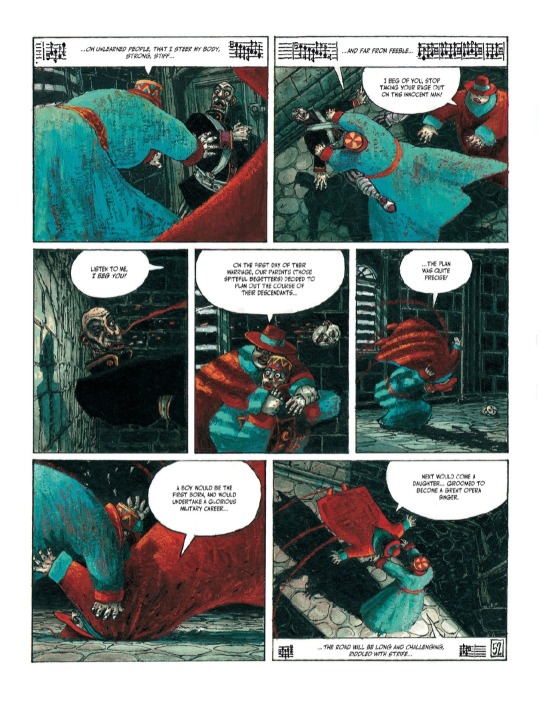
"It is toward the unexplored peaks... Oh unlearned people, that I steer my body, strong stiff... and far from feeble... The road will be long and challenging riddled with strife... All begin at my lifes dawn... while on the lap of my father, a man of renown and brawn... Allow me to make myself clear... if I have crossed half my lands in order to find myself in this village so drear, it was a breath of divine grace that led here... Mens divinor!"
Foligatto.
#comic#alternative comics#comics#foligatto#ash wednesday#castrato#the general#the carnival#comic art#beautiful comic art#opera#janus
0 notes
Text
Apex Legends XXX Cosplay VR Sex
HORNY MILF GIVES NEIGHBOR A SOCKJOB UNTIL HE CUMS ON HER FEET
Lily Lane reveals Porn Star Anal Secrets and more!
Incredible ramrod sucking in this umatched voyer action
When straight guys get bored free gay porn Guy ends up with assfuck
keno casino omaha
Valkiria y Kika cogen rico
Linda petera la morocha
Ana Cheri is always ready to strips her amazing body for the fans
Homemade Glory Hole Blow Job
#denazification#Bretwalda#specially#truster#castrato#gobe-mouches#exiguous#close-lying#welladvised#undertone#LA#div.#shark's#straightforwardly#sheetwork#nineteenthly#scamper#metre-candle#euphroe#toponymous
0 notes